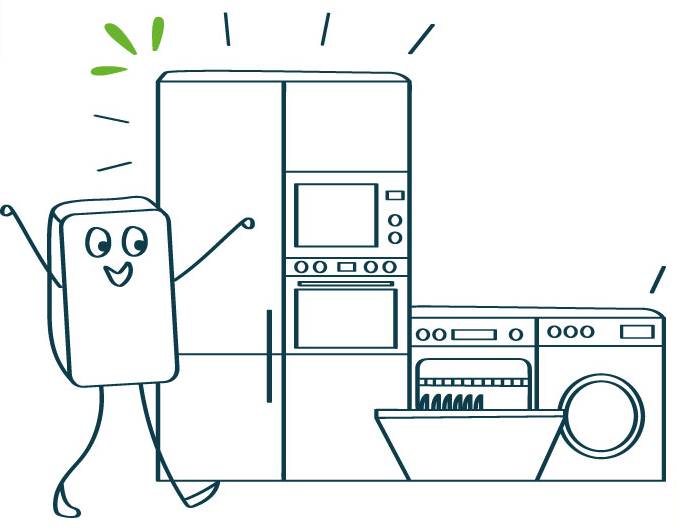
Taking care of household equipment
> Ovens

As the years go by, household appliances build up scale and grime. A scaled appliance consumes more energy, and its performance is increasingly limited. It's therefore advisable to clean your appliances regularly for greater efficiency and savings!
The number of household appliances in our homes is multiplying! To increase the lifespan of these everyday items, follow our maintenance tips:

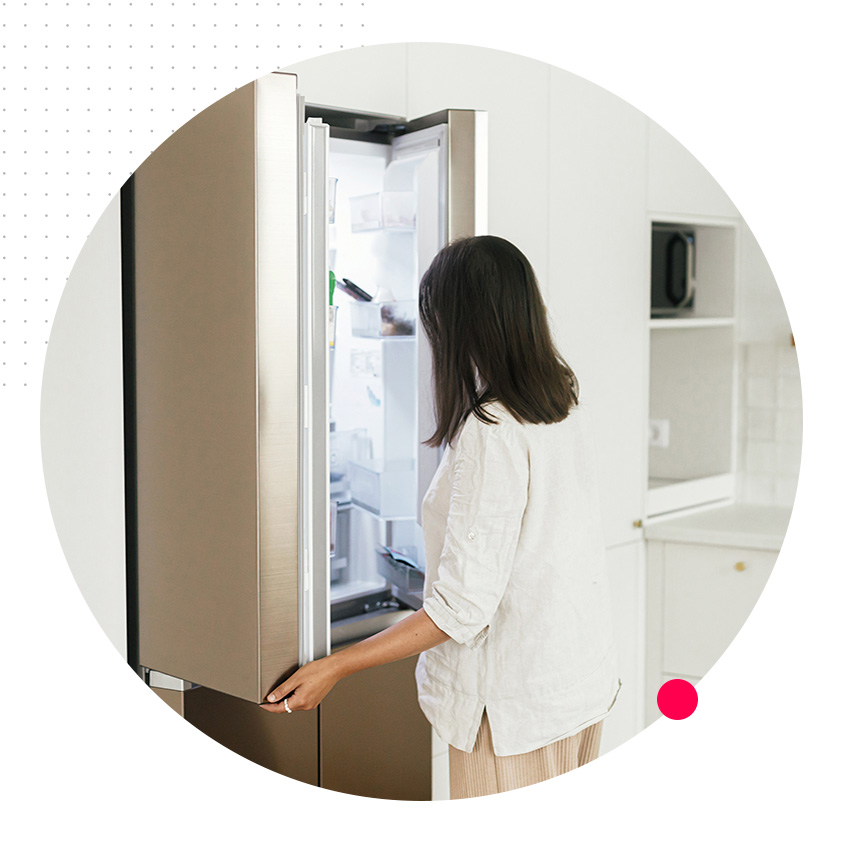
Refrigerators
It's best to clean the inside of your fridge once a month, and of course, whenever dirt appears.
All you need is a clean sponge and a multi-surface cleaner. Next, don't neglect the disinfection stage, using bleach tablets diluted in water, for example. Rinse with clean water.
TIP?
Don't forget to clean the outside of your fridge, especially the door opening and seals, with the help of a clean sponge and a multi-surface cleaner.

washing machineS
The washing machine takes care of your clothes,but can become clogged over time. We recommend running a 60°C cycle, preferably empty, at least once a month to eliminate any bacteria or detergent residues that may build up.
The various components of your machine should also be cleaned regularly: product container, water inlet and drain filters, door seal...
Tips?
Use just the right amount of detergent for each wash. Too much detergent per cycle can lead to incomplete rinsing of the tank and gradual clogging.
Leave the machine door open after each wash to ensure complete drying and avoid unpleasant odors and mildew.
Also check that nothing has become trapped in the joint between the door and the drum, especially for front-loading washing machines.
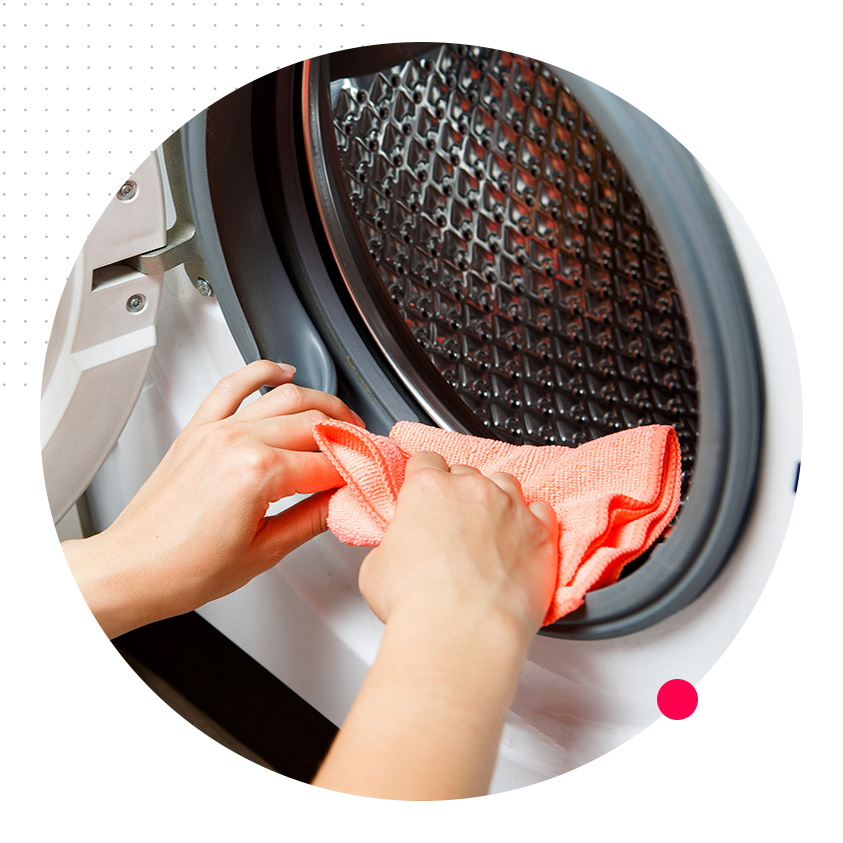

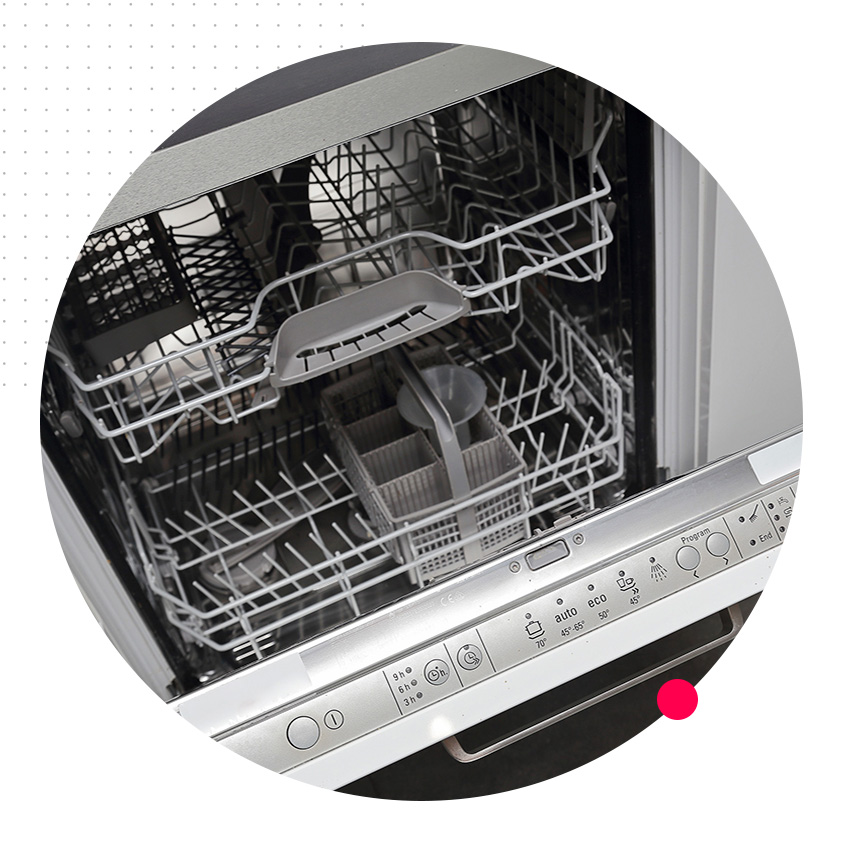
dishwasherS
Dishwashers need regular cleaning to guarantee impeccable dishes!
Don't forget the various parts that make it up (filter, door seal, washing arm...) to get rid of any residues and greasy deposits that may build up.
TIPS?
Remember to regularly run your dishwasher empty on a hot wash program (at least 65°) to remove grease. You can also use a special dishwasher cleaning tablet for greater efficiency.

Kettles and coffee machines
Their main enemy is limescale! There's nothing like white vinegar, bicarbonate or lemon to combat it.
TIP?
For your coffee machine, run hot water without coffee every morning to clean the circuit. For your kettle, a mixture of equal parts water and white vinegar, brought to the boil and left for 30 minutes, is highly effective in removing scale deposits.
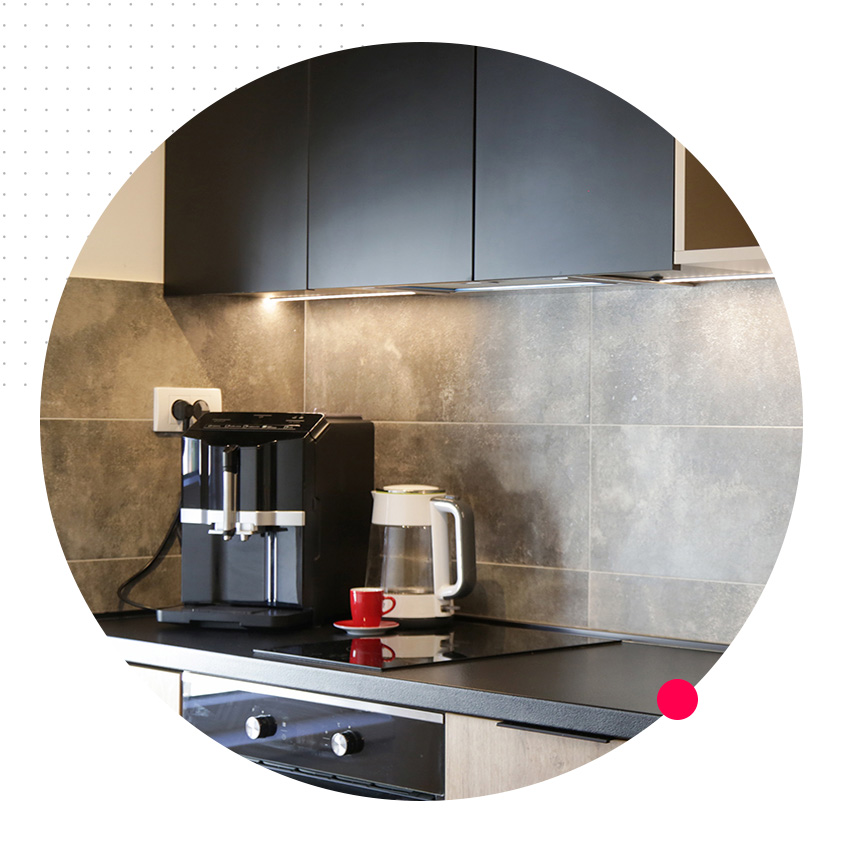

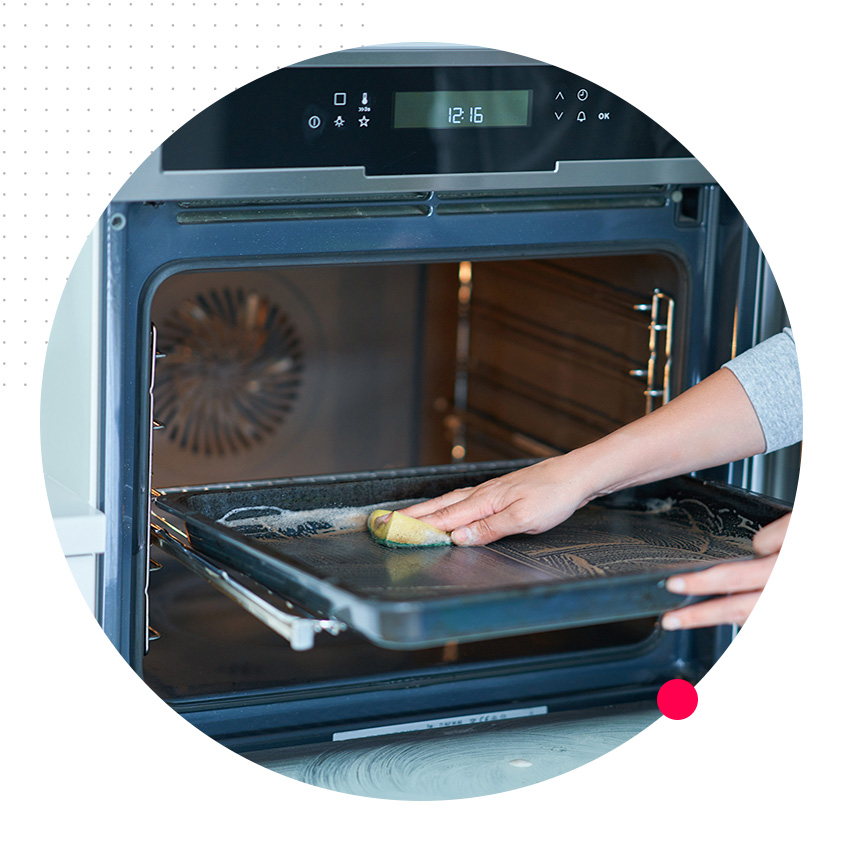
ovens
It's important to get rid of burnt-on grease and food residues on a regular basis. When your oven is really too clogged, you can use liquid black soap mixed with water. Apply the mixture with a sponge to the oven walls, glass and racks. Leave for a few minutes, then rinse.
TIP?
Ovens are now widely equipped with a pyrolysis function, which removes all residues at high temperatures. Think about it when you renew your appliance.

Microwaves
Here too, it's important to get rid of food residues. In the same way as for the oven, just wipe it down with a sponge and cleaner, and you're done! It's best to do this after each use, as it's more difficult to get rid of residues that have been heated and reheated several times.
TIP?
The cloche is a very practical accessory to have, as it prevents food splashes, but as with the oven itself, it needs to be cleaned regularly.
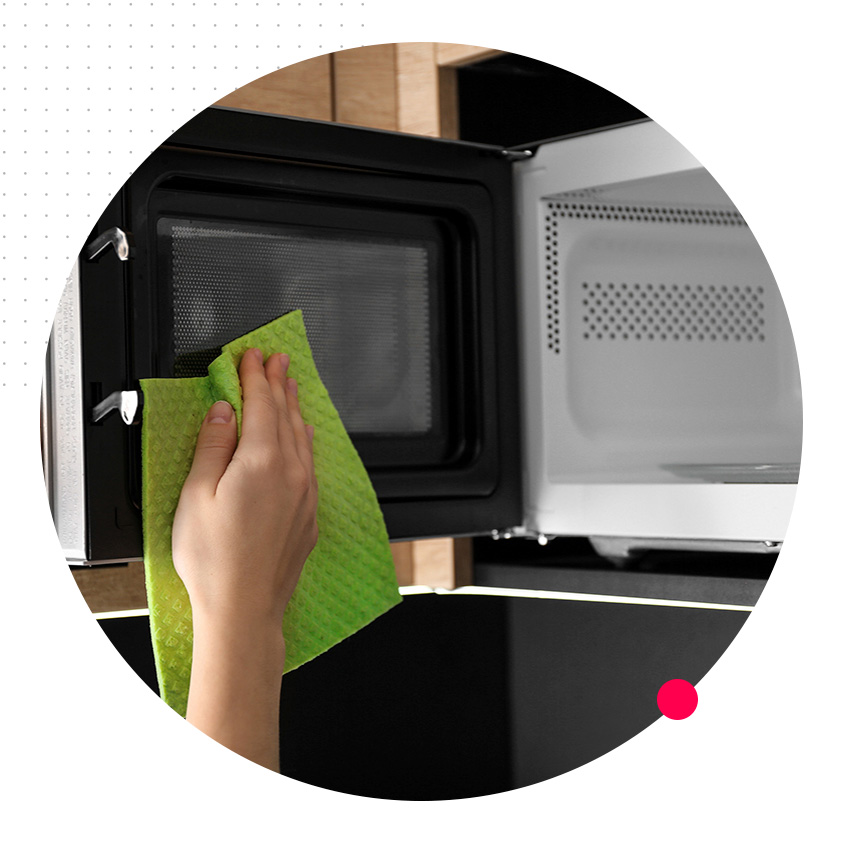

It's also important to clean and disinfect the cleaning elements themselves: sponges, dishcloths and cloths also need to be maintained so that they don't become bacteria vectors themselves.
What do you think are the dirtiest places in your home?
CLEANING AND DISINFECTING: THE DIFFERENCE
Let's start by differentiating between these 2 actions: cleaning and disinfecting. Although often confused, these 2 actions have different results and must be combined for a good household routine.
CLEANNING
Cleaning removes dirt, surface impurities, dust and grease. After cleaning, the surface will be clean, but it may still be contaminated by micro-organisms such as bacteria or fungi.
DIsinfection
Disinfection plays a more advanced role: it kills or deactivates pathogens. The aim is to prevent their proliferation and the possible inconveniences they may cause.
Finally, one does not go without the other, they follow on from each other: disinfection comes after cleaning, and ensures healthy surfaces for more effective cleaning.
Want to find out more? Download the « Mon Expert Propreté » application developed by the FHER with the participation of Eurotab and other household cleaning product experts.
Precautions for use
- Use detergent products only for their intended purpose and in accordance with the instructions on the label or packaging.
- Follow dosage recommendations to avoid wastage.

